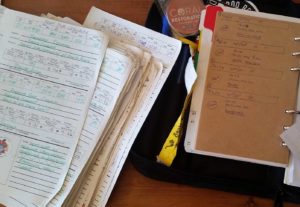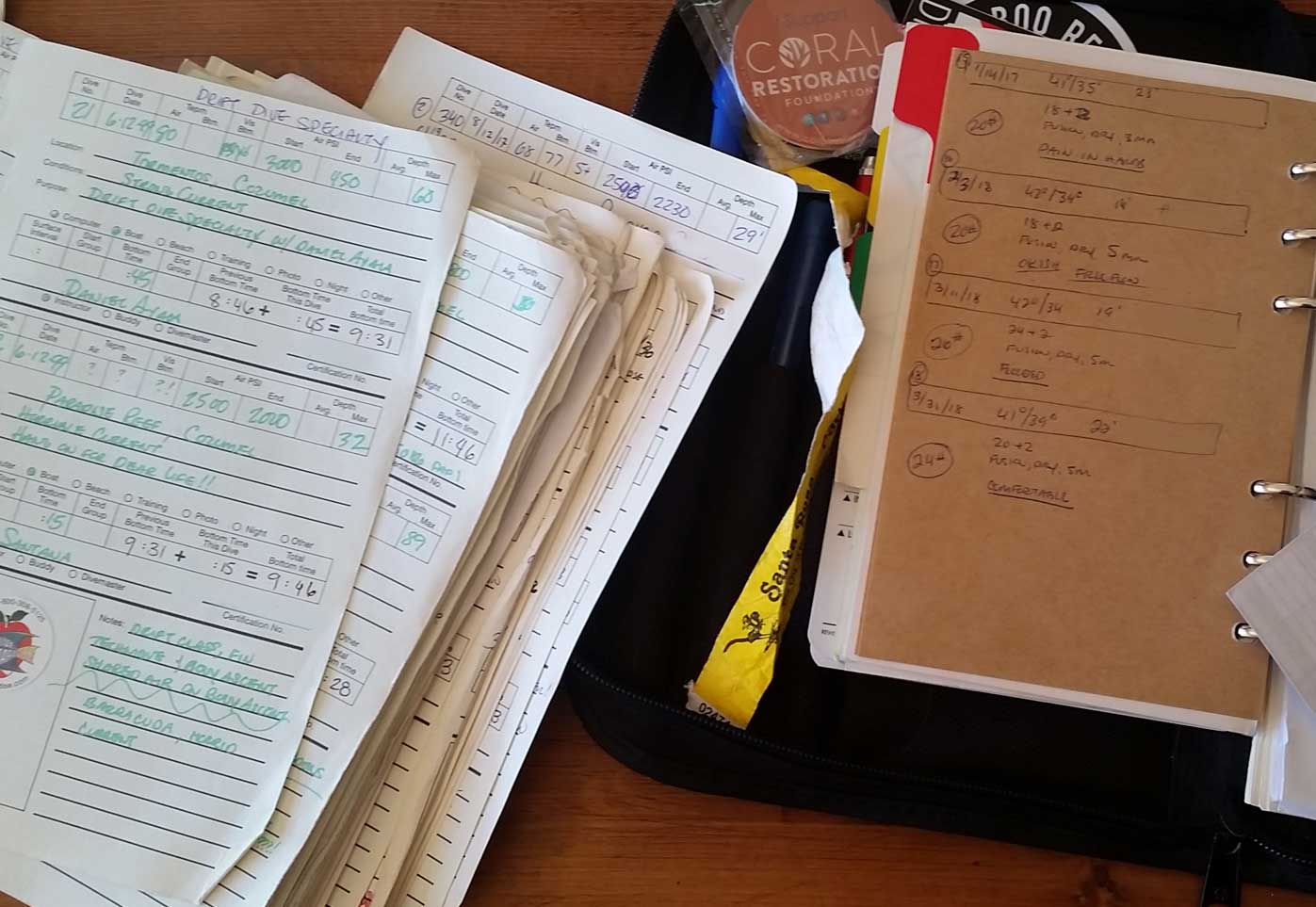“I Don’t Really Keep a Log Book, I Don’t See the Value”
I regularly hear this phrase and always begs the question: “Why DON’T you find use in a log book?”.
My log book is loaded with so much value, many memories. It documents the people I have met, the places I have seen, the things I have found. It serves as a reminder of the experiences I’ve had and reference for a multitude of other random things.
What Do You Track?
- Dives only over 15 ‘ for 15 minutes or more
- Date
- Time
- Air Temperature
- Dive Site
- Dive Buddy
- Water Temperature
- Starting Pressure
- Ending Pressure
- Max Depth
- Average Depth
- Animals Encountered
- Remarkable Things
- Memories
- Items Found
- Weight Used
- Exposure Suit Used
- Equipment (if changed) and thoughts on how it worked/didn’t work
- Any other interesting tidbits
- Stickers or stamps
Why Track All That Information?
Time, Date, Temp and Location
The simple details are useful for future trips and for other people who ask about trips that I have been on. They are also very useful for future dilemmas of “what to pack”. Packing is cumbersome and time-consuming, so any assistance I can offer myself to leave the fluff behind is valuable.
Weight, Exposure Suit, Equipment
“What to wear” is invaluable information for dive planning. Whether you change from fresh water to salt, from cold water to warm, or diving the same place over multiple seasons, information is priceless. When you consider all the configuration of gear from 32 degree fresh water with a multiple layers and a drysuit to 90 degree surface temps and 78 degree salt water with current, there is a lot to remember. Documenting the suit, weights and equipment can save a dive, save frustration and eliminate stress entirely if you have information.
Animals Encountered, Things Found
The time and date information combined with the animals encountered is not only great for dive planning, it’s also a documented history of the health of these ecosystems. Twenty years ago, I recall diving with Grouper. They were seen on nearly every dive in Honduras – so much so, they became pesky, following me around like a shadow. Today, I hardly see any Grouper on any dive, anywhere. Twenty years ago, there were no Lionfish that I had seen nor documented. Nowadays, they are prevalent. I find fishing line, nets, trash, things that I can pull out of the water, with my own hands, to know that I make a difference. That to me, is worth noting, even on a small scale.
People
Divers are usually friendly people. We share a common sport, humbled by the weather, conditions, sea-sickness and of course, being seen in a swimsuit with matted hair – not our best look. Most of us are interesting, intelligent people with a common love – diving. Each person we meet allows us to grow as humans, learn skills that become part of us, and learn about new experiences we can have. Documenting even a portion of the “who” we have become seems a small effort from the greatness that comes from a single encounter with others.
Personal Experience
Logging dives may seem cumbersome or without value to some. And an empty log book can be anything you want it to be – another thing collecting dust on a shelf, a vast resource of information and experiences, or pages in your future just waiting to be written.
The value isn’t from the book itself, the value is from your life, your experience.
The value, is you.

